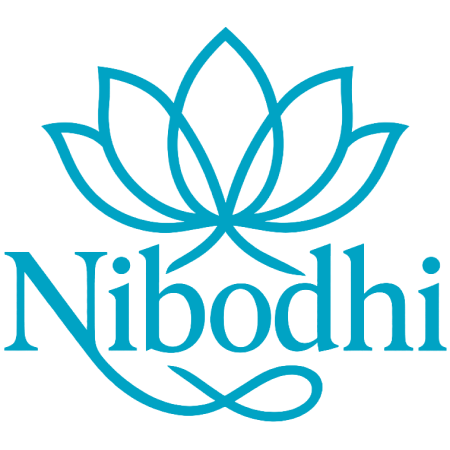Ayurvedic adaptogens for stress support and daily balance

This post is for general informational purposes only and may include affiliate links. It is not intended as medical advice. We may earn a commission through qualifying purchases. Read the full disclaimer.
Ancient herbal wisdom meets modern stress management
Adaptogens have been around for thousands of years, but we’re just starting to understand how vital they are for life today. As we navigate a world filled with noise, speed, and stress including everything from environmental toxins to emotional overload, these herbs offer something special, real support. They help the body, mind, and spirit adapt, recover, and thrive.
Ayurveda has always understood this. Adaptogenic herbs are deeply woven into its daily and seasonal rhythms, used to support our vitality, strengthen immunity, calm the nervous system, and uplift mental clarity. They’re sacred tools of healing that require understanding, reverence, and intentional use.
What are adaptogens?
Adaptogens are natural substances made up mostly of herbs, roots, and fungi that help the body adapt to stress, restore physiological balance, and build resilience. The term “adaptogen” was coined by a Russian scientist in the 1940s, but the idea behind it is ancient. The word comes from Latin roots meaning “to adjust” or “fit,” and that’s exactly what they help the body do: adjust to what life throws at us, physically, emotionally, and mentally.
For a plant or herb to qualify as an adaptogen, it must meet three key criteria:
- Non-specific action – It must support multiple systems in the body, not just one.
- Normalizing effect – It must help restore balance whether a system is overactive or underactive.
- Non-toxic – It should be safe for long-term use with little to no side effects.
Adaptogens interact with the body in a way that encourages stability across its systems.
How adaptogens work in the body
The magic of adaptogens lies in how they interact with some of the body’s most crucial systems. One of the main pathways they work through is the HPA axis, which stands for hypothalamic pituitary adrenal axis and governs the body’s response to stress. This is where cortisol, the stress hormone, is produced and regulated.
Adaptogens help balance cortisol levels, preventing the spikes and crashes that come with chronic stress. They also support:
- Cellular energy production – By enhancing mitochondrial function, they restore vitality.
- Oxidative stress repair – Acting as powerful antioxidants, they neutralize free radicals.
- Neuroendocrine balance – They regulate hormones and neurotransmitters, especially in the gut-brain connection.
Stress affects everything: our digestion, immune system, reproductive health, and even our ability to think clearly. Adaptogens meet us at each of these points, quietly bringing the body back into a more coherent, functional state.
Why sourcing matters
Not all adaptogens are created equal. You can find herbs labeled “adaptogenic” in health food stores or even major retailers, but that doesn’t mean they’re effective or safe. Many are mass-produced, grown in depleted soils, or filled with contaminants like heavy metals.
The potency of an herb depends on how it’s grown, harvested, and processed. Ayurvedic tradition emphasizes herbs that are cultivated in harmony with natural cycles, in tune with the rhythms of the sun, moon, and earth. This alignment is what imbues them with prana, the life force, and ojas, the subtle essence that nourishes immunity and longevity.
Choose herbs that are:
- Certified organic or wildcrafted – Ensuring they are grown without chemicals in mineral-rich soil.
- Tested for purity and potency – Look for third-party lab testing for heavy metals and active compounds.
- Prepared traditionally – Using time-tested methods that retain their life force.
The doshas and adaptogens
Ayurveda teaches that we all have a unique mind-body constitution made up of the three doshas known as Vata, Pitta, and Kapha. Adaptogens interact differently with each one:
- Vata – Often anxious, scattered, or depleted. Adaptogens calm the nervous system and increase grounding.
- Pitta – Prone to inflammation and overdrive. Adaptogens cool and soothe, reducing heat and reactivity.
- Kapha – Tends toward sluggishness and stagnation. Adaptogens energize, improve metabolism, and uplift.
The beauty of adaptogens is that while they support the whole system, they can be tailored based on constitution and need.
How adaptogens support each system
Let’s explore how these herbs function across different systems in the body. Their effects can vary depending on the individual and the specific needs of each system.
Nervous system
Chronic stress affects cognition, mood, sleep, and emotional regulation. Adaptogens nourish and protect the nervous system, improving memory, calming anxiety, and preventing burnout.
Favorite herbs:
- Ashwagandha – Calms the nervous system, boosts stamina, and promotes restful sleep.
- Brahmi – Sharpens cognition, improves focus, and reduces mental fatigue.
- Rhodiola – Builds resilience, enhances clarity, and supports performance under pressure.
Endocrine system
The glands that produce hormones such as the thyroid, adrenals, ovaries, and testes are sensitive to stress. Adaptogens help regulate these systems, improving hormonal balance and energy.
Key allies:
- Tulsi (Holy Basil) – Regulates cortisol, balances thyroid function.
- Shatavari – Nourishes the female reproductive system, enhances fertility and hormonal harmony.
- Eleuthero (Siberian Ginseng) – Strengthens adrenal function and prevents fatigue.
Immune system
Stress weakens immunity. Adaptogens boost our resistance by modulating the immune response and reducing inflammation.
Go-to herbs:
- Guduchi – Strengthens immunity, supports detoxification.
- Amla (Amalaki) – Potent antioxidant and natural source of vitamin C.
- Astragalus – Enhances white blood cell function, supports long-term immunity.
Cardiovascular system
Chronic stress increases blood pressure, inflammation, and cholesterol. Adaptogens protect the heart and improve circulation.
Powerful adaptogens:
- Arjuna – The premier heart herb in Ayurveda, supports healthy blood pressure and arterial health.
- Reishi mushroom – Anti-inflammatory, antioxidant, and supports heart-centered healing.
- Schisandra berry – Enhances blood flow and reduces oxidative damage.
Digestive system
The gut is often the first system affected by stress. Adaptogens improve digestion, soothe inflammation, and restore microbiome balance.
Digestive favorites:
- Triphala – A blend of three fruits that balances digestion and detoxification.
- Licorice root (Yashtimadhu) – Soothes gut lining and reduces acid, especially good for reflux.
- Maca root – Enhances nutrient absorption and energizes the entire system.
Musculoskeletal system
Stress and inflammation show up as tension, fatigue, or joint pain. Adaptogens support tissue repair and reduce inflammation.
Key herbs:
- Turmeric – The golden anti-inflammatory that supports joint and liver health.
- Gotu Kola – Supports tissue repair and reduces fatigue.
- Cordyceps mushroom – Increases ATP production, boosts muscle endurance.
Respiratory system
Breath is life. Adaptogens support respiratory function by clearing inflammation and enhancing oxygen uptake.
Supportive remedies:
- Licorice root – Soothes inflammation in the lungs.
- Pushkarmool – Clears mucus and strengthens lung function.
- Chyawanprash – An ancient tonic that builds immunity and supports lung health.
Exploring mushroom adaptogens as nature’s hidden treasures
Medicinal mushrooms offer some of the most potent adaptogenic properties on the planet. Here are a few standouts:
- Reishi – Calms the nervous system, supports immunity, and encourages deep rest.
- Cordyceps – Boosts oxygen use, enhances stamina, and supports libido.
- Chaga – The most powerful antioxidant mushroom, supports detoxification and longevity.
- Lion’s Mane – Regenerates brain cells, supports memory, and heals cognitive decline.
- Turkey Tail – Repairs the gut lining, enhances immunity, and has cancer-fighting compounds.
- Maitake – Balances blood sugar, supports the liver, and regulates hormones.
Each of these has its own place, but when combined in a formula like “Five Treasures” they create a symphony of healing.
👉 I recommend Real Mushrooms for their pure organic supplements made from fruiting bodies only, supporting immunity, focus, and well-being."
Practical ways to use adaptogens
The best herbs are the ones you actually take. Here are simple ways to integrate adaptogens into daily life:
- Herbal teas – Make infusions with tulsi, ashwagandha, licorice, or adaptogenic mushrooms. Add warming spices like cinnamon or cardamom for taste and synergy.
- Warm plant-based milks – Blend powders like ashwagandha, maca, turmeric, or Chyawanprash into almond or oat milk. Sweeten lightly with honey if desired.
- Powders and pastes – Mix powders with ghee or honey to form a paste. Take a spoonful with meals or before bed.
- Smoothies – Add adaptogenic powders like maca, triphala, or reishi to your daily smoothie.
- Capsules and tablets – Choose high-quality, plant-based capsules. Occasionally open them to taste the herbs as this activates digestion and immunity.
- Medicinal foods – Chyawanprash is a delicious daily tonic that supports immunity, digestion, and vitality. Take a spoonful before meals.
Honoring the path of healing
Adaptogens are one of many tools offered by nature that can support balance and resilience. When incorporated into daily routines alongside practices such as rest, breathwork, movement, connection, and nourishing food, they can complement broader efforts toward well-being.
These herbs interact gently with our systems, encouraging self-regulation and adaptive function. Their role aligns with practices like meditation, intentional movement, and mindful nourishment, offering steady support over time.
The relationship with adaptogens can be viewed as part of a larger engagement with health and awareness. Used thoughtfully, they serve as ongoing companions on the path of well-being.
Prefer to listen instead?
This blog post is a written version of the podcast episode, How Adaptogens Restore Vitality and Inner Harmony. It covers the key insights for easy reading. If you want the full audio experience with personal stories and the energy of the conversation, listen to the full episode.
What I use and love
Want to know what I recommend for a healthier, happier life? Every product on Nibodhi’s Favorites is something I personally use, trust, and love. Take a look at my go-to wellness picks.
Join my free newsletter
Get quick daily wins, health insights, and science-backed wisdom for a healthier, calmer, and more radiant life. 5 New tips Every Thursday.

